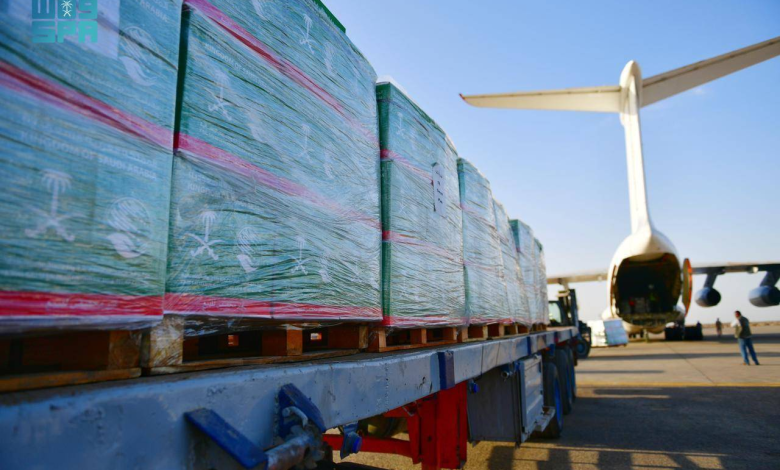Sudanese Army Blocks Aid Entry via Chad, Drawing Washington’s Anger

Authorities aligned with the army in Sudan have prohibited the entry of aid across the border into the war-torn Darfur region in the western part of the country, a move condemned by the United States and relief organizations, while the Rapid Support Forces have emphasized their role in protecting aid in their controlled areas.
The vast Darfur region, bordering Chad, is one of the most affected parts of Sudan since the war began ten months ago, between the Sudanese armed forces and the Rapid Support Forces.
In its current battle against the army, which began in April last year, the Rapid Support Forces have seized control of four out of the five capitals of the Darfur states. Over 694,000 people have fled across the border to Chad, according to the International Organization for Migration, but many are still trapped in Darfur and in need of assistance.
The United Nations has been forced to restrict its operations from Chad to Darfur across the border, and Eddie Rowe, director of the United Nations World Food Program in Sudan, stated to journalists last week, “the authorities have restricted” these operations.
On the other hand, U.S. State Department spokesman Matthew Miller said on Friday that the United States was extremely concerned about “the recent decision of the army to ban humanitarian aid across the border from Chad.
أطلعت قوات الدعم السريع على البيان الصحفي الصادر من الناطق الرسمي باسم وزارة الخارجية الأمريكية ماتثيو ميللر بتاريخ ٢٣ فبراير، ٢٠٢٣، بخصوص إعاقة المساعدات الإنسانية وتقييد الفضاء المدني في السودان. وتود قوات الدعم السريع توضيح الآتي بشأن ما ورد في ذلك البيان:
1. نثمن كثيراً…
— Rapid Support Forces – قوات الدعم السريع (@RSFSudan) February 25, 2024
Reports indicating that the Sudanese armed forces are obstructing aid access to communities in areas controlled by the Rapid Support Forces.”
The Rapid Support Forces appreciated Washington’s stance, stating, “We share the U.S. Department of State’s concern about this decision, which clearly contradicts the principles of international humanitarian law, and the international and national commitments of the Sudanese armed forces.”
In a statement posted on Twitter, they denied involvement in looting aid, saying, “The Rapid Support Forces did not loot humanitarian aid stores in their controlled areas, because relief did not reach them in the first place, and because our forces are committed to protecting and delivering aid to the affected in all areas, in compliance with the permanent orders issued to them by the leadership in this regard.”
In Brussels, Rowe from the World Food Program said that his agency “is working with authorities to ensure the continued operation of this vital lifeline” from Chad.
An international relief worker, who requested anonymity, said on Sunday, “This is necessary,” adding, “Children and infants are already dying from hunger and malnutrition, there will be a massive human impact… and widespread death rates are very likely.”
The relief worker continued, “The highest levels of diplomacy must resolve this situation immediately, as millions of lives” are at stake, describing Darfur as a “vast region already facing an imminent and immense food crisis, in addition to civil war, ethnic violence, and the collapse of state services.”












